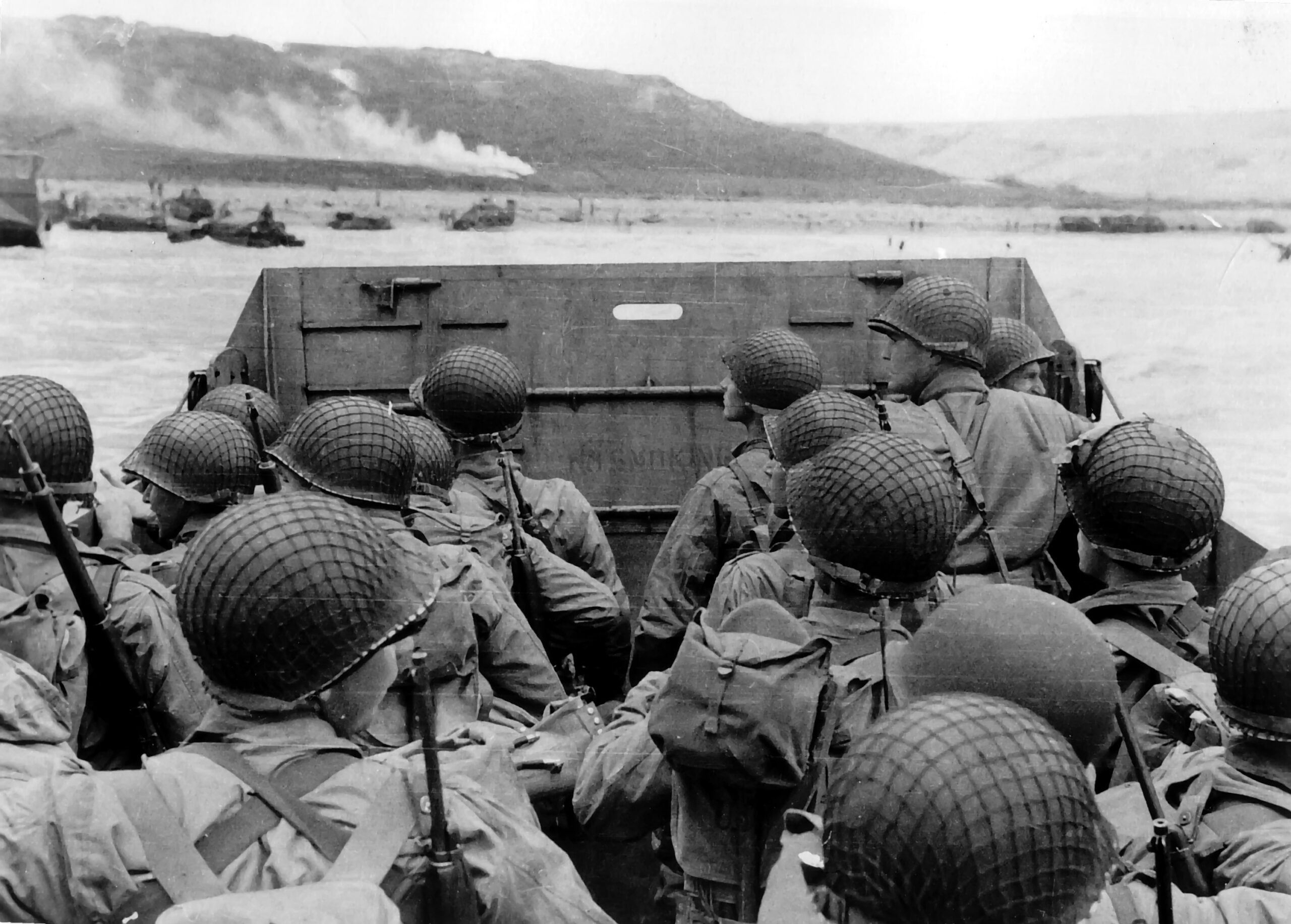On June 6, 1944 the United States along with its Allies from around the globe landed on the shores of fortress Europe and opened up a new front in the campaign to free the world of fascism and tyranny. This was D-Day.
Anniversary Conversation: Upon the 76th Anniversary of D-Day, June 5, 2020, Preservation Maryland Executive Director Nicholas Redding interviewed Jared Frederick, historian and author of Dispatches of D-Day. The conversation will take place 76 years to the moment that paratroopers landed in the fields of Normandy starting the greatest amphibious assault in world history.
Among those soldiers who hit the bloody beaches at Normandy, was the 29th Infantry Division, composed of Pennsylvanians, Virginians, and many Marylanders. Landing as a part of the first wave of attacks on Omaha Beach, the 29th Infantry Division encountered ferocious small-arms and artillery fire the moment their landing boat’s gates dropped. By the end of the first half-hour of combat, hundreds had been cut down – some regiments losing well over two-thirds of their men.
Holbrook Bradley, a photographer and foreign war correspondent with the Baltimore Sun arrived later that day and cabled a frightening report from Omaha Beach, where the 29th had fought:
“We landed today on a war-torn stretch of the French Channel coast, which only a few hours back was a raging battle area. Although the frontal positions have advanced several miles inland, there is still a grim pall from the recent heavy fighting about the beach.”
That evening, back in the United States, and in countless homes across Maryland, President Roosevelt’s calming words descended over the nation in a radio broadcast which referred to the Normandy landings as a part of a broader, “struggle to preserve our Republic, our religion, and our civilization, and to set free a suffering humanity.”
Despite the fact that the Allies failed to reach many of their aggressive goals for June 6, the beachhead at Normandy had been established.
It would take many weeks before a full break-out from the ‘bocage’ or hedgerow country of Normandy – but it was only a matter of time. Fortress Europe was penetrated and the Nazis were in retreat. Many more lives would be lost before victory in Europe in May of 1945, but D-Day marked the beginning of the end for Nazism and Maryland played a profound role in that story.

